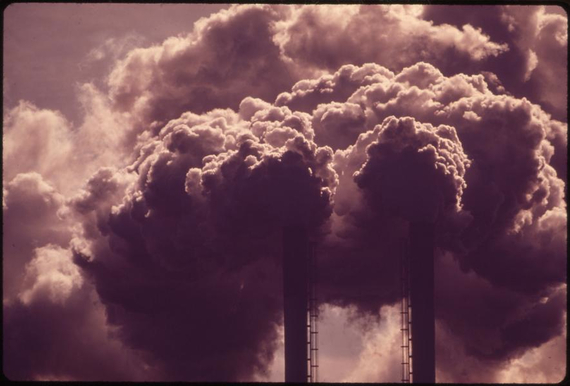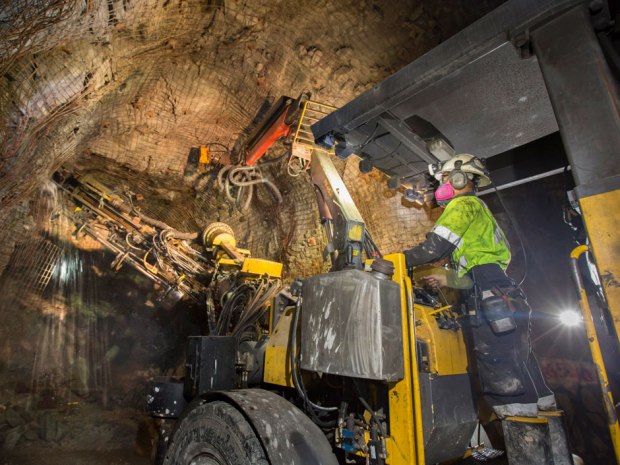
By Bernie Saunders, reposted from BernieSaunders.com, on Dec 7, 2015
Right now, we have an energy policy that is rigged to boost the profits of big oil companies like Exxon, BP, and Shell at the expense of average Americans. CEO’s are raking in record profits while climate change ravages our planet and our people — all because the wealthiest industry in the history of our planet has bribed politicians into complacency in the face of climate change. Enough is enough. It’s time for a political revolution that takes on the fossil fuel billionaires, accelerates our transition to clean energy, and finally puts people before the profits of polluters.
-Senator Bernie Saunders
THE PROBLEM
Climate change is the single greatest threat facing our planet. The debate is over, and the scientific jury is in: global climate change is real, it is caused mainly by emissions released from burning fossil fuels and it poses a catastrophic threat to the long-term longevity of our planet. If we do nothing, the planet will heat up five to ten degrees Fahrenheit by the end of this century. That would cause enough sea level rise from melting glaciers to put cities like New York and Miami underwater – along with more frequent asthma attacks, higher food prices, insufficient drinking water and more infectious diseases.
But this isn’t just a problem for the future – the impacts of climate change are apparent here and now. Whether it’s more intense forest fires on the West Coast, or more frequent hurricanes in the Gulf Coast, or damaging flash floods in California, climate change is here and it’s already causing devastating human suffering. The worst part is this: people who live in low-income and minority communities will bear the most severe consequences of society’s addiction to fossil fuels.
This is every kind of issue all at once: the financial cost of climate change makes it an economic issue, its effect on clean air and water quality make it a public health problem, its role in exacerbating global conflict and terrorism makes it a national security challenge and its disproportionate impacts on vulnerable communities and on our children and grandchildren make acting on climate change a moral obligation. We have got to solve this problem before it’s too late.
WHY HAVEN’T WE SOLVED IT YET?
Solving this should be straightforward. After all, the majority of Americans understand the seriousness of climate change, and they demand action. 97 percent of scientists agree about the urgent need to act and the vocal minority who don’t are bought and paid for by the fossil fuel industry. More and more countries around the world are beginning to do their part, by stepping up to significantly curb their use of fossil fuels to become part of the solution. If our democracy worked the way it’s supposed to, that would be enough – the debate would be over, the facts would be heard and lawmakers would obey the will of the people.
But that’s where the billionaire class comes in. Instead of engaging on this issue in good faith and allowing democracy to play out, executives and lobbyists for coal, oil, and gas companies have blocked every attempt to make progress on climate change, and thrown unprecedented amounts of money at elected officials to buy their loyalty. Recent reporting even shows that executives at Exxon pioneered the research on climate change before anyone else did, but may have deliberately lied about it to spread disinformation and confusion to protect their bottom line. It’s eerily reminiscent of the fight over tobacco regulation, when executives from the tobacco companies repeatedly testified before Congress that cigarettes don’t cause cancer. Recently leaked internal documents show that even they knew they were lying.
Let’s be clear: the reason we haven’t solved climate change isn’t because we aren’t doing our part, it’s because a small subsection of the one percent are hell-bent on doing everything in their power to block action. Sadly, they have deliberately chosen to put their profits ahead of the health of our people and planet.
THE FUTURE
The debate is over. The vast majority of the scientific community has spoken. Climate change is real, it is caused by human activity, and it is already causing devastating harm here in the United States, and to people all around the globe. So what are we going to do about it? We will act boldly to move our energy system away from fossil fuels, toward energy efficiency and sustainable energy sources like wind, solar, and geothermal because we have a moral responsibility to leave our kids a planet that is healthy and habitable.
— Senator Bernie Sanders
Here’s the good news: our society is already moving in the right direction. Solar panels cost 80 percent less than they did in 2008 and they’re popping up on rooftops everywhere. In fact, nearly a full quarter of the world’s electricity today comes from clean, sustainable resources like the sun and wind. The leaders of the seven major industrialized nations, including the United States, agreed in the summer of 2015 to a long-term goal of phasing out fossil fuels entirely and moving to an economy powered entirely by clean energy sources like wind, solar and geothermal. We’re already transitioning to a clean energy economy – but scientists say we need to do it faster and we need to do it right.
Doing it right means ensuring that workers have the skills, equipment, and training they need to succeed in a clean energy economy. It also means workers need to be able to organize and advocate for good wages and safe working conditions. Bernie knows these workers do some of the most important work in America and we need to ensure without a doubt that their livelihoods will be helped – not hurt – by the transition to clean energy. That’s why Bernie is introducing the Clean Energy Worker Just Transition Act to provide comprehensive benefits to workers as they transition to making the solar panels, wind turbines, and batteries of tomorrow.
The key is to stop funding the problem by subsidizing fossil fuels and instead accelerate our path to progress by showcasing our American innovation to accelerate the transition. This is important, because the support of the American people can make an enormous difference. In the 60’s, President Kennedy set a goal that many said was impossible – but by the end of that decade, Neil Armstrong had successfully taken his giant leap for humanity. Our government needs to think that big today and commit to prioritizing the transition to an economy powered by more than 80 percent clean energy sources by 2050. That starts with simple, commonsense steps: instead of subsidizing massive fossil fuel corporations, we can create millions of jobs for working families by investing in clean energy. The answer is clear and affordable. The solutions are within our reach – we just need average Americans to come together to make it happen.
THE GOALS
Bernie’s comprehensive plan to combat climate change and make sure our planet is habitable and safe for our kids and grandkids will:
- Cut U.S. carbon pollution by 40 percent by 2030 and by over 80 percent by 2050 by putting a tax on carbon pollution, repealing fossil fuel subsidies and making massive investments in energy efficiency and clean, sustainable energy such as wind and solar power.
- Create a Clean-Energy Workforce of 10 million good-paying jobs by creating a 100% clean energy system. Transitioning toward a completely nuclear-free clean energy system for electricity, heating, and transportation is not only possible and affordable it will create millions of good jobs, clean up our air and water, and decrease our dependence on foreign oil.
- Return billions of dollars to consumers impacted by the transformation of our energy system and protect the most vulnerable communities in the country suffering the ravages of climate change. Bernie will tax polluters causing the climate crisis, and return billions of dollars to working families to ensure the fossil fuel companies don’t subject us to unfair rate hikes. Bernie knows that climate change will not affect everyone equally – disenfranchised minority communities and the working poor will be hardest hit. The carbon tax will also protect those most impacted by the transformation of our energy system and protect the most vulnerable communities in the country suffering the ravages of climate change.
The Plan
RECLAIM OUR DEMOCRACY FROM THE BILLIONAIRE FOSSIL FUEL LOBBY
The fossil fuel industry spends billions and billions of dollars lobbying and buying candidates to block virtually all progress on climate change. At the national level where companies have to report what they spend on lobbying and campaign contributions, the oil companies, coal companies and electric utilities spent a staggering $2.26 billion in federal lobbying since 2009 and another $330 million in federal campaign contributions. Even in Washington, that’s a lot of money.
But that’s just the part we know about. Thanks to the disastrous Citizens United Supreme Court decision, the fossil fuel industry can pour unlimited amounts of money into the political system without having to disclose how much or where they spend it.
So what does the fossil fuel industry get in exchange for all that money? They get friends who help them keep $135 billion dollars in tax subsidies and corporate welfare over the next decade. They write legislation to build the Keystone XL pipeline. They block efforts to move us beyond oil by blocking the development and deployment of clean, sustainable energy.
This makes it harder to take action to fight climate change. But the solutions are possible. Together there is nothing we can’t achieve.
AS PRESIDENT, BERNIE WILL:
- Ban fossil fuels lobbyists from working in the White House. Massive lobbying and unlimited super PAC donations by the fossil fuel industry gives these profitable companies disproportionate influence on our elected leaders. This practice is business as usual in Washington and it is not acceptable. Heavy-handed lobbying causes climate change skepticism. It has no place in the executive office.
- End the huge subsidies that benefit fossil fuel companies. When fossil-fuel companies are racking up record profits, it is absurd to provide massive taxpayer subsidies to pad their already enormous earnings. After all, it is immoral that some in Congress advocate harsh cuts in Medicare, Medicaid and Social Security while those same people vote to preserve billions in tax breaks for the most profitable corporations in America.
- Create a national environmental and climate justice plan that recognizes the heightened public health risks faced by low-income and minority communities. Low-income and minority neighborhoods will continue to be the hardest hit if we don’t act to stop climate change now. Ten years ago, Hurricane Katrina decimated the Gulf Coast, flooding 80 percent of the city of New Orleans. Some areas of the city were submerged in as much as 10 feet of water, and 28 percent of residents had no way to leave the city. Almost 100,000 African American residents who left New Orleans after Hurricane Katrina never returned. The reality of the impacts of the storm on the African American community in New Orleans exposed the broader trend that low-income and minority communities face the brunt of climate change impacts first and worst.
- Bring climate deniers to justice so we can aggressively tackle climate change. It is an embarrassment that Republican politicians, with few exceptions, refuse to even recognize the reality of climate change, let alone are prepared to do anything about it. The reality is that the fossil fuel industry is to blame for much of the climate change skepticism in America. Bernie recently called for the Department of Justice to investigate Exxon Mobil, which may have not only known about the dangers of climate change, but has spent millions of dollars to spread doubt about the causes and impacts of burning fossil fuels.
- Fight to overturn Citizens United. In a 5-4 decision in 2010 in the Citizens United case, the Supreme Court opened the floodgates for corporations and the super wealthy to spend unlimited and undisclosed money to buy our elected officials. The Supreme Court essentially declared that corporations, including fossil fuel corporations, have the same rights as natural-born human beings. This decision has enabled billionaires and special interests to increasingly control the political campaign finance system, and amounts to legalized bribery.
BERNIE’S RECORD:
Bernie introduced a constitutional amendment that prohibits for-profit corporations from making contributions or expenditures into political campaigns. In other words, Bernie’s amendment reaffirms what’s already in the Constitution: the right to vote belongs to people, and not corporate entities whose money is drowning out the rest of us.
- Back legislation to publicly finance elections. Bernie wants to move toward public funding of elections to promote a more even playing field where anyone can run for office without having to beg for money from the wealthy and the powerful. Public funding of elections increases voter participation, helps lower the influence of outside money and lowers the amount of time politicians spend fundraising, allowing them to implement solutions, as they were elected to do. He envisions a future of inclusivity that would restore our American democracy by ensuring each citizen has equal power in determining the future leaders of our nation.
ACCELERATE A JUST TRANSITION AWAY FROM FOSSIL FUELS
Scientists warn us if we continue burning fossil fuels, we will experience cataclysmic change, in terms of more disease, more hunger, more drought, more famine, rising sea levels, more floods, more ocean acidification, more extreme weather disturbances and more human suffering. That means we must leave the vast majority of global reserves of coal, natural gas and oil in the ground.
BERNIE’S RECORD:
Bernie recently co-sponsored the Keep It in the Ground Act to ban future fossil fuel leases on our public lands. His legislation would keep over 90 percent of the potential carbon emissions from fossil fuels on our federal lands and waters underground forever.
Bernie believes we must transition away from fossil fuel consumption to prevent the worst impacts of climate change. But our transition away from fossil fuels must be fair to those currently working in the energy sector, which means those workers and their families must be able to depend on safe, living-wage jobs.
AS PRESIDENT, BERNIE WILL:
- Embrace a science-based standard for carbon pollution emissions reductions. We have a very limited window of time to transition away from fossil fuels toward clean energy for all Americans to prevent a global temperature increase that will cause cataclysmic impacts. Bernie knows that to maintain a safe and healthy planet for our kids and grandchildren we must listen to the scientists who say we must decrease carbon pollution emissions by at least 80 percent from 1990 levels by 2050.
- Put a price on carbon. Bernie agrees with leading economists on both ends of the political spectrum: a tax on carbon is one of the most straightforward and cost-effective strategies for quickly fighting climate change.
BERNIE’S RECORD:
Bernie is introducing the gold standard climate change bill that will tax polluters causing the climate crisis and return billions of dollars to working families to ensure the fossil fuel companies don’t subject Americans to unfair rate hikes. The carbon tax will also protect low-income and minority communities that are most impacted by the transformation of our energy system and protect the most vulnerable communities in the country suffering the ravages of climate change.
- Protect the health of our children. Kids are uniquely threatened by air pollution from sources like coal plants and oil refineries. Children’s lungs are more sensitive to air pollution than adults. Climate change exacerbates existing air pollution problems, which will only increase the health impacts on children, especially those with respiratory diseases like asthma. As a father of four and a grandfather of seven, Bernie cares about leaving clean air and a healthy, livable planet for all of our kids and grandchildren.
- Create clean, domestic energy alternatives to power our cars and trucks. The transportation sector accounts for about 26 percent of carbon pollution emissions. We must move our transportation sector beyond oil by running our cars and trucks on electricity generated by solar and wind power. We need efficient public transportation, advanced renewable fuels and high-speed passenger and cargo rail.
- Ban Arctic oil drilling. Bernie knows that drilling in the Arctic Circle and the Arctic National Wildlife Refuge at a time when we face a serious climate emergency is unthinkable. Research shows that drilling in the Arctic is inconsistent with efforts to prevent catastrophic global temperature increases. The Arctic National Wildlife Refuge, which spans 19.6 million acres in Alaska and boasts the greatest biodiversity of any protected area north of the Arctic Circle, is too precious to put at risk from the detrimental consequences of oil production and extraction.
- Ban offshore drilling. If we are serious about moving beyond oil toward energy independence, lowering the cost of energy, combatting climate change and cutting carbon pollution emissions, then we must ban offshore drilling. If there is a lesson to be learned from the 2010 BP oil spill disaster, it is that Congress must not open new areas to offshore oil drilling.
- Stop dirty pipeline projects like the Keystone XL. Back in August 2011, Bernie was the first national politician to publicly oppose Keystone XL, because he saw that it would move us in exactly the wrong direction, toward greater dependence on fossil fuels, specifically tar sands oil, but also on one of the dirtiest and most expensive fossil fuels imaginable. Bernie was again the first presidential candidate to oppose the Bakken oil pipeline that would cross Iowa and the first to oppose the Northeast Energy Direct Pipeline that would bring fracked natural gas through New Hampshire. We need to invest in clean energy infrastructure, not lock ourselves into long-term payments and significant carbon pollution emissions for pipelines that could cause disastrous oil spills.
- Stop exports of liquefied natural gas and crude oil. The Department of Energy has found that exporting even half of the natural gas already approved for export could raise U.S. prices by up to 54 percent. Oil and natural gas exports must be in the interest of consumers, the economy, our manufacturing sector and national security – not merely the interest of fossil fuel companies’ bottom line. Especially while we still import oil, we should be transitioning toward clean, sustainable energy instead of incentivizing more extraction and consumption of fossil fuels.
- Stand with Vermont and other states to ban fracking for natural gas. Fracking threatens our air and water. Disposal of wastewater from fracking causes earthquakes. Oklahoma became the number one place for earthquakes on Earth this year because gas companies inject fracking fluid back into the ground. Fracking is a large-scale industrial process that doesn’t belong in anyone’s backyard or deserve exemption from laws that protect the health of our children. That’s why communities all over the country from New York to California and Texas to Colorado have stood up to the oil and gas industry and said they don’t want fracking in their backyards. Bernie was very proud when Vermont became the first state to ban fracking. We have clean energy solutions to climate change, and fracking is not one of them.
- Ban mountaintop removal coal mining and invest in Appalachian communities. Across the Appalachian Mountain Range, coal companies are blowing up entire mountaintops to get at the thin coal seams below. The communities in the region are paying for this destructive practice in their health, their culture and their natural heritage. Bernie is in staunch opposition to this dirty and damaging practice and believes we must invest in Appalachian communities to help them transition to a clean, prosperous, and healthy future.
- Close the loopholes that allow the chemical, oil and gas industries to pollute our air and water. Bernie served as mayor of Burlington, Vermont, which sits on one of the largest freshwater lakes in the United States, Lake Champlain. Bernie understands the importance of clean water practices and recognizes how it impacts communities. The federal Clean Water Act and Clean Air Act have reduced pollution, but they are always under attack by polluters who put profits before the health of our children and grandchildren.
- Increase fuel economy standards to 65 miles per gallon by 2025. Recent fuel economy standards put us on track to reach 54.5 miles per gallon in 2025, which moves us in right direction, but still leaves us lagging behind the rest of the world. Japan is set to reach that level five years before us, and Europe will do even better, reaching over 65 miles per gallon by 2020. Bernie knows we can do more and make our cars internationally competitive by raising our fuel economy standards to 65 miles per gallon by model year 2025. This will save car owners money at the pump, cut carbon pollution emissions and create good-paying American jobs.
- Protect public lands by promoting natural resource conservation and habitat preservation. Conservation of our public lands such as our National Parks and Forests are an American tradition and a vehicle for economic growth. Our conserved public land also serves an important role in not only preventing climate change but also in mitigating the catastrophic effects of climate change like floods, hurricanes and other extreme weather that have been increasing in frequency. Bernie is committed to ensuring that Americans have access to urban, suburban and rural recreational green space that are vital to our national heritage and our country’s tradition of recreation and conservation.
INVESTING IN CLEAN, SUSTAINABLE ENERGY
Choosing to lead the clean energy technology revolution to stop the worst effects of climate change means America will remain a worldwide leader in job creation, domestic manufacturing, local community revitalization and clean energy technology development and implementation.
The solar industry is adding workers at a rate nearly 20 times faster than the overall economy. Solar industry employment has grown by 86 percent in the past five years, resulting in nearly 80,000 domestic living-wage jobs.
For every dollar invested in energy efficiency, families and businesses can enjoy up to $4 in energy savings, and for every billion dollars invested in energy efficiency upgrades we can create up to 7,000-8,000 new jobs, roughly ten times as many jobs as we would create from the same investments in coal. Investments in clean energy technologies will also keep jobs in America and prevent harm to the economy by preventing the worst impacts of climate change.
Bernie strongly supports efforts to develop and deploy clean, sustainable energy technologies like energy efficiency, solar, wind and geothermal.
AS PRESIDENT, BERNIE WILL:
- Work toward a 100 percent clean energy system and create millions of jobs. Scientists tell us we have a short time to make an aggressive cut in our carbon pollution emissions. Transitioning toward a completely clean energy system for electricity, heating, and transportation is not only possible and affordable it will create millions of good jobs, clean up our air and water and decrease our dependence on foreign oil.
- Invest in clean, sustainable energy sources powered by the sun, wind and Earth’s heat. Massive and sustained investment in clean energy technology development and implementation can get us where scientists tell us we need to be. It’s no great secret that clean energy technologies are a good investment. We actually get more energy out of the money invested in sustainable energy technologies than we do out of fossil fuel. Clean energy technology has no associated fuel costs, which means there are no price spikes like we see with oil and gas. The cost of deploying solar panels has gone down by more than 80 percent since 2008, thanks to tax credits and federally funded research and development. Our national solar capacity will soon provide enough energy to power four million homes.
Similarly, wind tax credits spurred the development of wind farms that now provide enough power for 16.7 million American homes. In fact, wind provided almost 30 percent of all new domestic power capacity in the last five years. Last year, nearly 30 percent of the electricity used in Iowa came from the wind. The decreasing cost of wind and solar demonstrates that we can have a 100 percent clean energy future.
- Invest in advanced renewable fuels and keep our energy dollars at home. Renewable fuels have become a key component of our national strategy to move beyond oil in the fight against climate change. Renewable fuels must be produced in a way that achieves our environmental and energy security goals. We must both ensure that our renewable fuels production is truly sustainable, and we must also prevent the oil companies from derailing our progress in developing cleaner and more sustainable alternatives to gasoline and diesel. We should emphasize new, clean technologies like cellulosic ethanol and algae-based fuels. Advanced biofuels have enormous potential to deliver dramatic reductions in carbon pollution and strengthen rural economies, all while keeping our energy dollars here at home instead of sending them overseas to oil oligarchs in Russia and the Middle East.
- Invest in solar energy and put money back in the pockets of consumers. Bernie believes that solar energy is one of the most promising sources of clean energy for America’s future. That’s why he supports making billions of dollars of investments in renewable energy, like solar. Bernie recently introduced the Low Income Solar Act to increase low-income families’ access to solar energy by making it more affordable for people who own their own home and incentivize access to community solar projects. Investing in solar energy is just as important for the economy as it is for the Earth. Bernie supports solar net metering, which means that people who invest in solar should be able to offset the cost – or in some cases even make money – on their electric utility bill. He recognizes that as we lower the cost of solar energy and increase our use of solar, we can create hundreds of thousands of good-paying manufacturing and installation careers in this country.
- Invest in making all American homes more energy efficient. Energy Efficiency is a “low-hanging fruit” because the investments made in energy efficiency are so effective in reducing carbon pollution emissions, and the return on investment is so quick. For every dollar invested in energy efficiency technologies, like weatherization and efficient light bulbs, energy customers can enjoy up to four dollars in savings. Bernie has long been a champion of the Weatherization Assistance Program (WAP), the Rural Energy for America Program (REAP), and the Low Income Home Energy Assistance Program (LIHEAP) that help rural and low-income families make their homes more energy efficient and lower their energy bills. At a time when we spend on average of $350 billion a year on foreign oil, we must take every possible step to invest in cheaper energy here in the United States. That’s why Bernie recently introduced the Residential Energy Savings Act to provide federal loans to states to perform energy efficiency updates to provide homeowners with valuable energy savings.
BERNIE’S RECORD:
Bernie secured $3.2 billion dollars for the Energy Efficiency and Conservation Block Grant initiative in the stimulus bill, which was consistently rated a top-15 job creating program in the years after it was implemented. This grant helped to install over 9,500 solar systems and perform energy upgrades on approximately 86,000 buildings, which is saving consumers many billions of dollars in energy costs while also making our air cleaner by reducing pollution.
- Support American workers moving into clean energy jobs. Our transition to a clean energy economy has created hundreds of thousands of jobs all over the United States, and Bernie’s climate change plan will create millions more. But we must ensure our transition from fossil fuels to clean energy is a just transition for workers. That’s why Bernie is introducing the Clean Energy Workers Just Transition Act, which provides the most comprehensive package of benefits for workers, including extended unemployment benefits, education opportunities, health care and job training for those transitioning to a career in the clean energy industry. Additionally, the bill ensures that workers in the clean energy industry will be able to organize a union to ensure living wages and safe working conditions. It also makes billions of dollars of investments in communities most affected by a transition to a clean energy future.
- Invest in an affordable energy storage solution that will allow us to fulfill our clean energy needs. Affordable energy storage technologies like batteries allow clean energy technologies like wind and solar to be integrated onto the electric grid – even when the wind is not blowing and the sun is not shining. Effective storage systems can affordably balance energy supply with demand by capturing energy at times when there is excess energy on the system for use during hours of high demand. Battery storage continues to develop and is becoming increasingly more affordable for families all over the country.
- Build geothermal power plants to create full time family-wage jobs for operations, engineering, maintenance, and administration. Bernie believes that geothermal energy should play an important role in our country’s future energy portfolio. Geothermal systems can use the constant underground heat to provide heating when it is cool outside and to pull heat from buildings when it is warm outside. Geothermal energy power plants are less expensive than new modern natural gas plants and can be called on to produce power when the sun isn’t shining and the wind isn’t blowing. Geothermal conserves energy, reduces pollution and saves money all at once.
- Utility-Scale Clean Energy Generation. There are hundreds of thousands of roofs with solar panels, but research and technology developments have significantly improved sustainable energy technologies that are making large-scale clean energy an affordable reality. For example, advancements in utility-scale concentrated solar allows power from the sun to be stored for later use, even when the sun is not shining. Most importantly, concentrated solar power installations create permanent jobs and provide economic support for surrounding communities, which tend to be rural.
- Enable greater consumer choice in energy. Americans should have the ability to choose affordable clean technologies for their home and businesses. Additionally, the electric utilities and fossil fuel industries should not be able to get in the way of that choice. Grid modernization technologies enable greater consumer choice and ultimately utility bill savings by making it easier for families to connect clean energy resources to the grid.
- Begin a moratorium on nuclear power plant license renewals in the United States. Bernie believes that solar, wind, geothermal power and energy efficiency are proven and more cost-effective than nuclear – even without tax incentives – and that the toxic waste byproducts of nuclear plants are not worth the risks of the technology’s benefit. Especially in light of lessons learned from Japan’s Fukushima meltdown, Bernie has also raised questions about why the federal government invests billions into federal subsidies for the nuclear industry. We can have an affordable carbon-free, nuclear-free energy system and we must work for a safe, healthy future for all Americans.
- Provide global clean energy funding to vulnerable countries. The United States should lead the international community in funding technology development and deployment solutions for the most vulnerable developing countries as part of any international agreement.
REVOLUTIONIZE OUR ELECTRIC AND TRANSPORTATION INFRASTRUCTURE
In the United States, the transportation sector accounts for about 26 percent of carbon pollution emissions. That’s the second largest contribution to our total carbon emissions after the electricity sector, which accounts for about 31 percent.
When we built out our state-of-the-art rail system in the early 1860’s we became global leaders. But now our rail system pales in comparison to Japan, Germany and even China in terms of our high-speed passenger and cargo rail systems. Bernie will invest in interstate and intercity high-speed rail systems to bring people and commodities to their destinations more efficiently to save time and money.
We must also invest in electric vehicle charging infrastructure, just as we built an interstate highway system in the 1950s and 1960s. Many customers are interested in moving beyond oil toward an electric car, but the concerns of cost and whether there will be access to a charging station prevent many people from being able to choose this low-carbon option.
Both our transportation and electricity infrastructures must be updated. We still have electric lines and bridges that were built around the time Thomas Edison invented the light bulb. Modernizing the electrical grid helps balance higher amounts of clean energy, decreases outages and improves efficiency.
Bernie believes that infrastructure investments can create jobs and lead to a cleaner future.
AS PRESIDENT, BERNIE WILL:
- Build electric vehicle charging stations. In a country where nearly 30 percent of carbon pollution emissions come from the transportation sector, it is imperative that we end our dependence on gasoline. Vehicles that run on electricity are more efficient than internal combustion engines and can be powered with renewable energy resources like wind and solar. We need to support the development of vehicle charging stations that will allow us to drive cleanly and sustainably.
- Build high-speed passenger and cargo rail. Our nation’s rail system is largely obsolete, even though our energy-efficient railroads move more freight than ever, and Amtrak’s ridership has never been higher. While Amtrak’s fastest train travels at an average speed of just 65 mph, high-speed rail now crisscrosses most of Europe, Japan, Taiwan, South Korea and China with trains that run up to 200 mph. Once we have a state-of-the-art rail system, we will not only be able to move passengers and cargo faster and more efficiently, we will make significant cuts in carbon pollution emissions that cause climate change and create millions of permanent family-wage jobs for electricians, pipe fitters and sheet-metal workers.
BERNIE’S RECORD:
Bernie introduced the Rebuild America Act to invest $15 billion to improve rail so America can begin to catch up with the rest of the world.
- Make our cities more walkable and take more cars off the road. Public transit can move more people in fewer vehicles, which is good for clean air and reducing carbon pollution emissions. Public transportation saves enough electricity to power nearly 5 million homes in the United States. Despite the potential for public transit and biking to save Americans money and reduce emissions, the United States has a long way to go to make the roads safe for those who choose these alternative modes of transportation.
- Update and modernize the energy grid. Some of our grid infrastructure has not been updated since it was first built in the 1920s and 1930s. This causes hundreds of avoidable power failures and interruptions each year. Today, power failures cost the economy $164 billion annually, stemming from impacts like lost productivity and wasted food. Those costs are only expected to increase as climate change causes more extreme weather, which can knock the power out. Additionally, our grid is highly centralized and therefore susceptible to cyber and physical attacks. Technology development in clean energy resources and electric grid improvements have enabled “smart” technologies, programs and policies to create a safer, more sustainable energy system. The “smart grid” offers real benefits for consumers and the environment.
BERNIE’S RECORD:
Bernie introduced the Rebuild America Act, which would invest $10 billion a year for power transmission, distribution and modernization projects that will improve the reliability and resiliency of our ever more complex electrical grid. The bill will also help increase access to broadband internet, which can also enable better, safer and more reliable electrical service.
LEAD THE INTERNATIONAL COMMUNITY TO SOLVE CLIMATE CHANGE AND PREVENT INTERNATIONAL CONFLICT.
Climate change is not just an “environmental issue,” but a global security issue as well. Climate change is an international crisis that threatens vulnerable communities all over the world.
The CIA and the Department of Defense both say that climate change is one of the great security issues facing this planet. As we see more and more drought, as people around the world are unable to grow the food they need to survive, people will migrate for survival. Instability can cause international conflict.
The United States must lead the world by working with China, Russia, India and the rest of the international community to transform our energy system away from fossil fuels toward energy efficiency and sustainable energy. We need a global commitment to reduce carbon pollution emissions.
The U.S. needs to lead the international community in the fight against climate change to maintain American economic strength and global security.
The United States has a unique opportunity to lead the international community in innovating strategies to cut climate pollution to avoid the most devastating damage of global climate change and adapt to the impacts that we cannot avoid. Our progress in reducing pollution levels over the last ten years has given us the credibility to demand that major developing nations also take bold action. In the past year, we have seen historic new commitments from countries like China and India who are for the first time putting forth their own aggressive climate agendas.
AS PRESIDENT, BERNIE WILL:
- Convene a climate summit with the world’s best engineers, climate scientists, policy experts, activists and indigenous communities in his first 100 days. The United Nations Paris climate talks in December are an important milestone toward solving climate change, but even optimistic outcomes of these talks will not put the world on the path needed to avoid the most catastrophic results of climate change. We must think beyond Paris. In the first 100 days of Bernie’s Presidency, he will convene a summit of the world’s best climate experts to chart a course toward the healthy future we all want for our families and communities.
- Lead countries in cutting climate change. Climate change is the greatest global challenge, and must be met with global solutions. The United States has contributed greatly to climate change, but also has the greatest opportunity and know-how to lead in implementing climate change solutions. The argument that we shouldn’t act until other countries do is falling by the wayside as China, India and many other countries have come to the table with initial commitments to take significant action to solve climate change.
- Plan for peace to avoid international climate-fueled conflict. Changes in rainfall patterns, higher temperatures and more frequent natural disasters such as droughts and flooding due to climate change pose a direct threat to our global food and energy supply. In the United States, this could mean higher food and energy prices. In some developing countries, the effects could be even worse, and lead to temporary or more permanent situations where not enough food or water is available for everyone. This has the potential to result in an international climate-fueled conflict. Bernie believes that we must plan for peace now in order to prepare for this sort of dire conflict that is already beginning to unfold in parts of the world.
SOURCE
Like this:
Like Loading...














